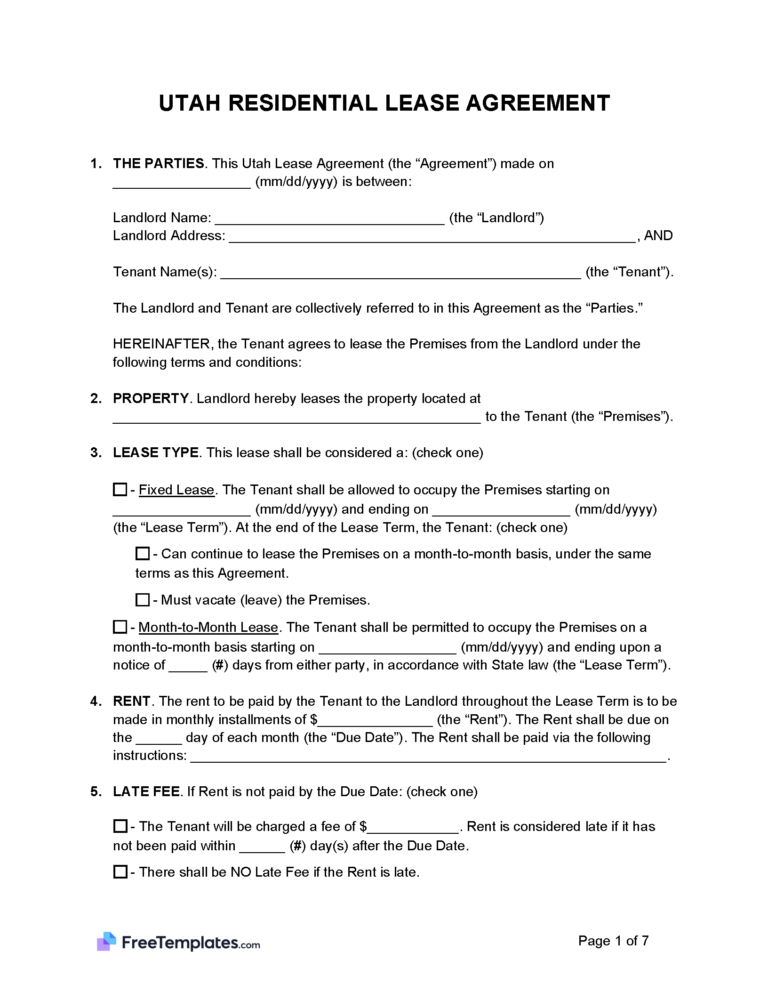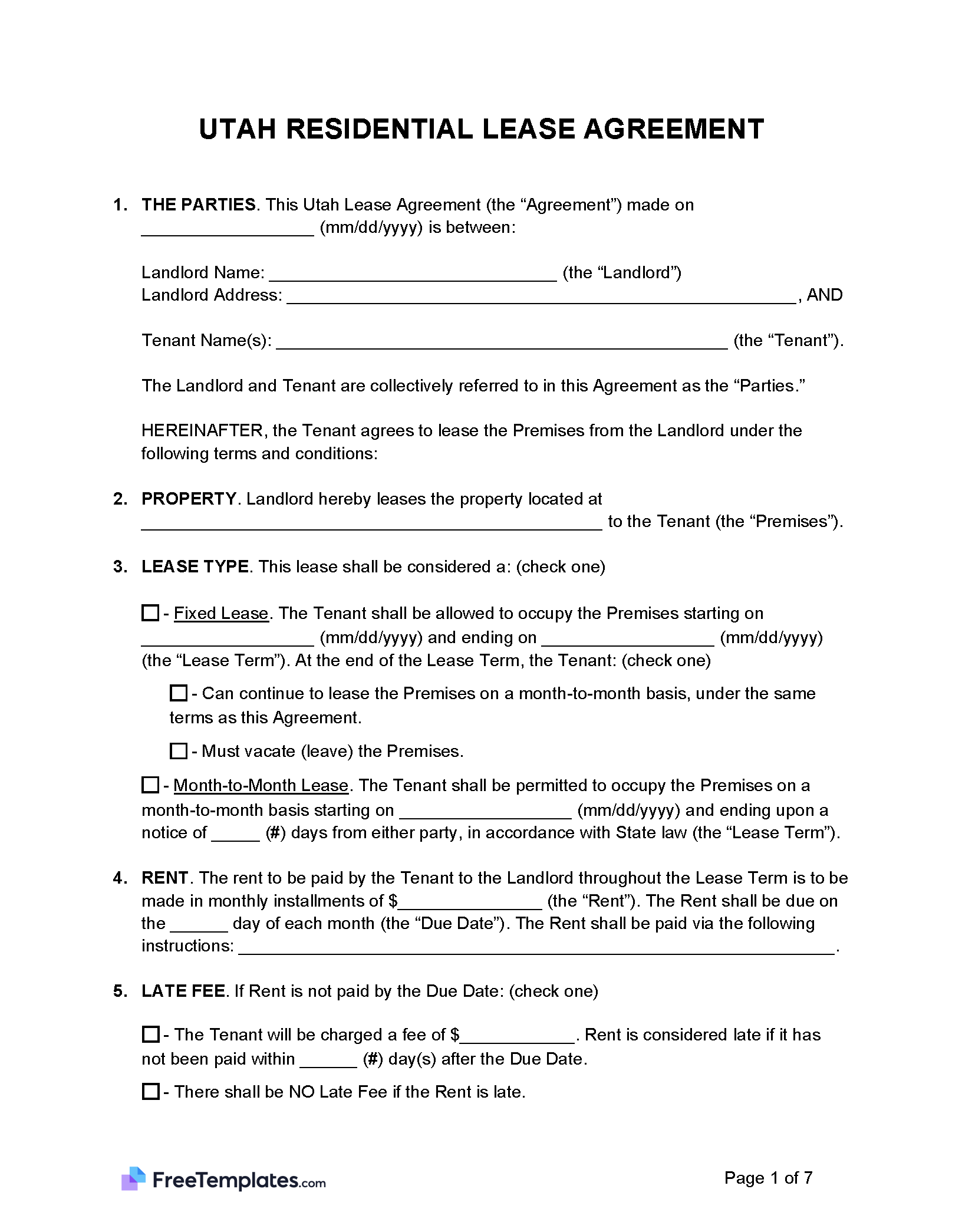By Type (6)
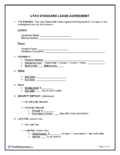 Standard Lease Agreement – This is the most common form of property agreement in which a landlord and a tenant establish the rules and responsibilities of a residential property lease. Standard Lease Agreement – This is the most common form of property agreement in which a landlord and a tenant establish the rules and responsibilities of a residential property lease.
|
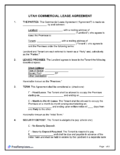 Commercial Lease Agreement – A document in which a business and a landlord agree to outline the rental of a property for office, retail, or industrial space. Commercial Lease Agreement – A document in which a business and a landlord agree to outline the rental of a property for office, retail, or industrial space.
|
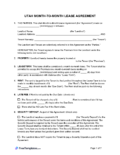 Month-to-Month Lease Agreement – This is a short-term lease that may renew next month or be terminated by either party at the end of the month. Either party must give a 15-day notice. Month-to-Month Lease Agreement – This is a short-term lease that may renew next month or be terminated by either party at the end of the month. Either party must give a 15-day notice.
|
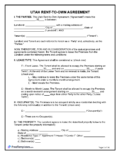 Rent-to-Own Agreement – A legal document between a landlord and a tenant by which the renter can rent and purchase the property. Rent-to-Own Agreement – A legal document between a landlord and a tenant by which the renter can rent and purchase the property.
|
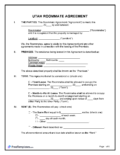 Roommate Agreement – An agreement between two cohabiting individuals that outlines the rules and responsibilities where both parties share a common property. Roommate Agreement – An agreement between two cohabiting individuals that outlines the rules and responsibilities where both parties share a common property.
|
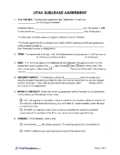 Sublease Agreement – A sublease agreement usually requires landlord permission and is when a leaseholder rents part or all of a space to another individual. Sublease Agreement – A sublease agreement usually requires landlord permission and is when a leaseholder rents part or all of a space to another individual.
|
Disclosures (4)
Landlord’s Contact Details – A tenant has the right to know the owner or landlord’s basic information, such as their name, phone number, and address. The tenant also must receive a copy of the rental unit’s rules and statutes. (§ 57-22-4(7))
Lead-Based Paint Disclosure – Federal Law mandates that any property constructed prior to 1978 that has known lead paint on the premises be disclosed to its tenants.
Methamphetamine Contamination – In Utah, a landlord or property owner must disclose any known methamphetamine contamination in the lease agreement. (§ 57-27-201(1))
Property Conditions Deport—Before the lease agreement begins, the landlord must provide a written list of the dwelling’s conditions. There must be an attached blank sheet where the tenant can list damages. (§ 57-22-4(6))
Security Deposit
Collecting Interest – There are no rules regarding interest on property security deposits.
Is an Itemized List Required? – There are no checklists required for a security deposit in Utah.
Maximum Amount – In the state of Utah, there is no established maximum amount a landlord can charge a tenant for the security deposit.
Returning to Tenant – Unless there are funds needed to repair damages to the unit, the landlord must return the security deposit to the tenant within 30 days. (§ 57-17-3(2))
Separate Bank Accounts? – Utah does not have laws requiring security deposits to be in a separate bank account.
Landlord Access
Emergency Access – While not mentioned in Utah laws, a landlord has the right to enter their property in the case of an emergency.
General Access – A landlord must give 24 hours’ notice to enter the rental property unless otherwise noted in the lease agreement. (§ 57-22-4(2))
Paying Rent
Grace Period – Rent must be paid on time in the state of Utah. Failure to pay rent on time may result in the landlord serving the tenant a notice to quit or pay.
Maximum Late Fee – A landlord can charge a tenant the maximum late fee of $75 or 10% of the monthly rent, whichever is greater. (§ 57-22-4(5)(a))
Returned Checks (NSF) – In the state of Utah, writing a bad check to a landlord may result in a maximum penalty of $20. (§ 7-15-2(2))
Reasons for Eviction (5)
Leaving Before the End Date – Tenants who abandon a property may be evicted unless they inform the landlord by written letter that they will be back. (§ 78B-6-815(2))
- Duty to Re-rent – The landlord has the ability to re-rent an abandoned property. (§ 78B-6-816(1))
Lockouts – There are no Utah state laws regarding the ability of the landlord to lock out a tenant.
Non-Compliance – Tenants who do not comply with the lease agreement may be served a 3-day notice to quit or comply. (§ 78B-6-802(1)(h))
Non-Payment of Rent – If the tenant fails to pay the rent on time, they may be served a 3-day notice to quit or pay. (§ 78B-6-802(1)(c))
Tenant Maintenance – The tenant are responsible for keeping the space clean and safe and following all rules outlined in the lease agreement. (§ 57-22-5)
